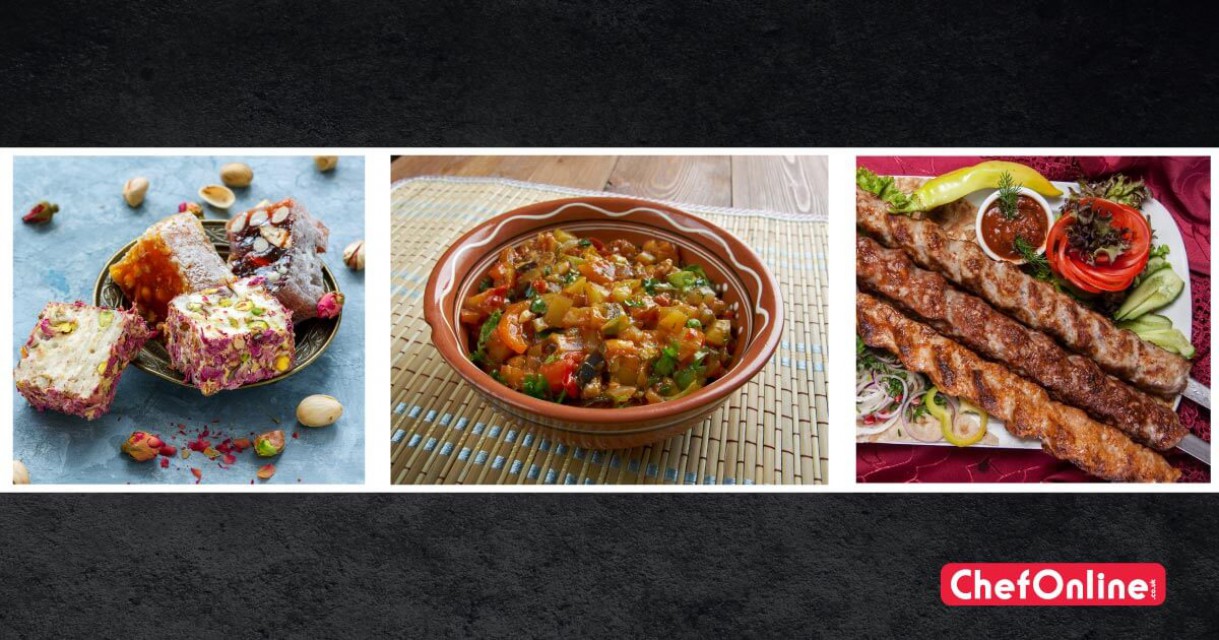Mediterranean cuisine is full of vibrant colours, unique ingredients, and exotic flavours. Long before the “med diet” entered the lexicon of healthy food habits, people had embraced the lifestyle. The cuisine has amazing flavours devoid of junk food, which makes it a healthier choice for the young and old. From fatty fishes to fruits and vegetables, staples are aplenty on your platter. Studies now reveal that the Mediterranean cuisine offers plenty of health benefits ranging from brain health to heart health, weight management, and sleep support.
Foods Included in a Typical Mediterranean Cuisine
Mediterranean cuisine is all about simple and healthy cooking, including all the common food you already intake. However, it is just about controlling the portion size. The cuisine is plant-based, emphasizing heavily on vegetables, fruits, grains, nuts, beans, seeds, and olive oil. You can also consume fish, poultry, dairy, and eggs regularly, but in smaller portions than a typical Western Cuisine. Meat is also a part of the cuisine, but occasionally, included in small portions to make beans or pasta dishes, and for some sauces. Mediterranean lifestyle also involves drinking red wine moderately.
Seafood is used as the primary source of protein appearing in most dishes. Owing to the close proximity to the sea and easy access to fresh seafood, you can find it commonly throughout this region.
Fresh herbs are also an integral part of the Mediterranean cuisine. The geography and climate of this region are naturally suitable for growing herbaceous plant, including both imported and indigenous. With some cultural variation in using certain herbs, the overall Mediterranean cuisine uses oregano, basil, rosemary, thyme, parsley, marjoram, mint, dill, tarragon, garlic, cilantro, saffron, and fennel.
A basic tenet of the Mediterranean lifestyle is to enjoy, relish and respect the food.
Why are Mediterranean Cuisine and Lifestyle Healthy for all?
Researcher Ancel Keyes’s original work ignited scientific interest in Mediterranean cuisine and lifestyle. The research conducted at the University of Minnesota focused on the cuisines and food habits of the Mediterranean region. It showed that inhabitants of the Mediterranean countries had a longer lifespan and a lower rate of severe illnesses despite a higher rate of drinking and smoking. It was also found that diet plan has potential health benefits, which includes lower risk of heart diseases, Alzheimer’s disease, Parkinson’s disease and cancer.
Distinct Mediterranean Cuisines
Although some common elements unify the Mediterranean cuisine, some significant cultural and regional differences exist. The cuisine of the Mediterranean is divided into three broad groups:
Eastern Mediterranean encompassing culinary traditions of Turkey, Greece, Lebanon, Egypt, Palestine, Israel, and Syria. Their cuisine mainly includes fresh cheese, yogurt, and sauces with flavours of sumac, lemon juice, mint, and parsley.
Southern Mediterranean found mainly in Southern France, Spain, and Italy. Pork is the staple food with garlic, tomatoes, capers, mustard, pine nuts, and anchovies.
North African Cuisine characterized by the use of spices of Tunisia, Algeria, Morocco, and Libya. They regularly use coriander, cumin, cinnamon, saffron and paprika for cooking. Lamb, goat meat and mutton are their dominant sources of food.






